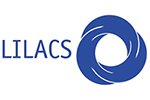ISSN Online: 2177-1235 | ISSN Print: 1983-5175
Editorial - Year2024 - Volume39 - Issue 2
According to Brazilian legislation1, 2, 3, 4 and international documents5, 6, 7, 8, research involving human beings must be submitted, through Plataforma Brasil, for analysis and approval by an Ethics Committee (CEP) and/or the National Research Ethics Commission (CONEP), linked to the National Health Council of the Ministry of Health. The regulations, manuals, and documents required for submission are available on the websites of the CEPs and CONEP9.
Research in plastic surgery is multiplying and, fundamentally, it is essential for surgeons to accept or reject conclusions presented in publications for decision-making. However, it is not an easy task, as they require knowledge of their practices and interventions, scientific methods, and research ethics.
Faced with these demands, especially from the community of researchers in the field of plastic surgery, in 2021, the founder of the HospitalDaherLagoSul in Brasília, Dr. José Carlos Daher, conceived and created the Daher Lago Sul Research Ethics Committee (CEP DAHER LAGO SUL)10. The CEP was created and registered by Official Letter 434/22 CONEP/SECNS/MS, in a joint effort with the director of the Hospital and the Coordinator, Dr. Katia Torres Batista, who already had more than 10 years of experience in research ethics at the performing the role of Coordinator and member of the CEP of the Associação das Pioneiras Sociais (Association of Social Pioneers) (Hospital Sarah) in Brasília.
Researchers with doctorates and masters, with voluntary and unpaid work, were invited to the multidisciplinary composition of the collegiate, with an executive secretariat and the entire physical structure sponsored by Hospital Daher. The group was created to promote ethical and safer research. The journey to register the CEP with CONEP took around a year, organizing the team, preparing the structure, regulations, minutes of composition, communication channels, website, documents on structure, and training for all members, following the CONEP protocol and standards.
Initially, projects with reports and case series, medical records and retrospective studies, presentation of surgical techniques, qualitative research, and postgraduate and course completion projects, among others, were evaluated. Currently, after more than two years of existence, other research centers have been linked, expanding the submission and analysis of clinical research projects, multicenter, research with coordination and/or sponsorship originating outside Brazil, except those with co-sponsorship from the Brazilian Government, some of which involve the treatment of cancer and chronic diseases such as lupus, asthma, obesity, and others.
It is worth highlighting that the evaluation and opinion of the CEP is not intended to hinder the carrying out of scientific research, but to assist and guide the researcher in carrying out ethical research. The positive experience of the CEP has been rewarding in several aspects, in the active participation of its members, in the growth in the number and degree of complexity of projects, in the shorter time to release opinions, in the awareness and motivation to carry out research in the area of surgery plastic surgery, and, mainly, for the creator and coordinator, to realize how much the plastic surgeon can stand out in the research area, occupying positions at all levels of research.
REFERENCES
1. Brasil. Constituição Federal. Brasília: Presidência da República; 1988 [acesso 23 abr 2024]. Disponível em: https://www.planalto.gov.br/ccivil_03/constituicao/constituicao.htm
2. Brasil. Lei nº 8.080, de 19 de setembro de 1990. Brasília: Presidência da República; 1990 [acesso 23 abr 2024]. Disponível em: https://www.planalto.gov.br/ccivil_03/leis/l8080.htm
3. Brasil. Lei nº 8.142, de 28 de dezembro de 1990. Brasília: Presidência da República; 1990 [acesso 23 abr 2024]. Disponível em: https://www.planalto.gov.br/ccivil_03/leis/l8142.htm
4. Brasil. Ministério da Saúde. Resolução nº 466, 12 de dezembro de 2012. Brasília: Conselho Nacional de Saúde; 2012 [acesso 23 abr 2024]. Disponível em: http://conselho.saude.gov.br/resolucoes/2012/Reso466.pdf
5. World Medical Association (WMA). Declaração de Helsinque. Ferney-Voltaire: WMA [acesso 23 abr 2024]. Disponível em: https://www.wma.net/wp-content/uploads/2016/11/491535001395167888_DoHBrazilianPortugueseVersionRev.pdf
6. UNESCO. Declaração Universal sobre o Genoma Humano e os Direitos Humanos. Brasília: UNESCO; 2000 [acesso 23 abr 2024]. Disponível em: https://unesdoc.unesco.org/ark:/48223/pf0000122990_por
7. UNESCO. Declaração Internacional sobre os Dados Genéticos Humanos. Paris: UNESCO; 2004 [acesso 23 abr 2024]. Disponível em: https://bvsms.saude.gov.br/bvs/publicacoes/declaracao_inter_dados_genericos.pdf
8. UNESCO. Declaração Universal sobre Bioética e Direitos Humanos. Paris: UNESCO; 2005 [acesso 23 abr 2024]. Disponível em: https://bvsms.saude.gov.br/bvs/publicacoes/declaracao_univ_bioetica_dir_hum.pdf
9. Brasil. Ministério da Saúde. Comissão Nacional de Ética em Pesquisa (Conep). Brasília: CONEP; 2024 [acesso 23 abr 2024]. Disponível em: https://conselho.saude.gov.br/comissoescns/conep#:~:text=O%20Sistema%20CEP%2FConep%20%C3%A9,dispostas%20em%20todo%20territ%C3%B3rio%20brasileiro
10. Hospital Daher Lago Sul. Comitê de Ética em Pesquisa Hospital Daher Lago Sul. Brasília: Hospital Daher Lago Sul; 2022 [acesso 23 abr 2024]. Disponível em: https://hospitaldaher.com.br/comite-de-etica-em-pesquisa-cep-hdls/
1. Hospital Daher Lago Sul, Comitê de ética em pesquisa, Brasília, DF, Brazil.
Corresponding author: Katia Torres Batista SHIS, QI 7, Conj. F, Lago Sul, Brasília, DF, Brazil. Zip Code: 71615-660, E-mail: katiatb@terra.com.br
 All scientific articles published at www.rbcp.org.br are licensed under a Creative Commons license
All scientific articles published at www.rbcp.org.br are licensed under a Creative Commons license







